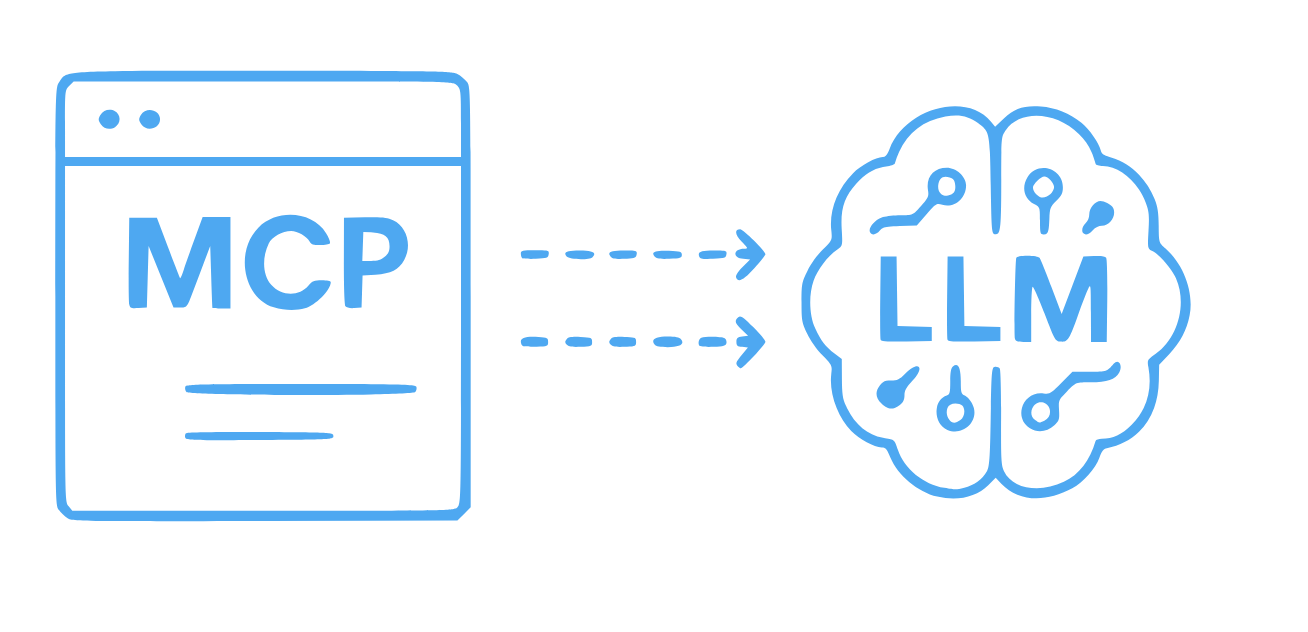MCP Server: A better way to connect AI assistants to data portals
Theo Bertol
Introduction
The world of AI assistants is rapidly evolving, but there's been a persistent challenge: how do we connect these powerful tools to the vast repositories of data that organizations maintain? Enter the Model Context Protocol (MCP) - Anthropic's groundbreaking open standard that's revolutionizing how AI systems interact with data sources.
What is the Model Context Protocol?

Before diving into our MCP Data Portal implementation, let's understand what makes MCP so revolutionary. Announced by Anthropic in November 2024, the Model Context Protocol is quickly becoming the universal standard for connecting AI assistants to data systems.
The Problem MCP Solves
Traditional AI assistants are often overwhelmed by unnecessary, copy-pasted context (JSON, CSV, etc.). We end up pasting a lot of information before having a good conversation or solving the problem, burning a lot of tokens, and still not solving the problem because the signal is buried in noise.
- How can I make this conversation more straight to the point?
- Why does my AI chat keep storing useless information?
- When did I ask for this?
- Where is this chat's context going?
All of these questions point to the core issue: managing context. How do we fix it?
The MCP Solution
MCP replaces these fragmented integrations with a single, open protocol. Think of it as the "USB standard" for AI-data connections - any MCP-compliant data source can serve context to any MCP-enabled AI client, and vice versa.
Think of it as simple: instead of copy/pasting, contextualizing, and rephrasing, an MCP server provides direct, permissioned access to the right sources (APIs, databases, datasets, connectors).
With an MCP server, the assistant knows which tools to call to answer your question. No more pasting 10,000-line CSVs.
Why Connect Data Portals to AI Assistants?
Imagine being able to:
- Ask natural language questions about datasets: "Show me environmental datasets from 2020"
- Get instant summaries of complex data without browsing through catalogs
- Discover relationships between datasets across different organizations
- Access metadata and resources through conversational interfaces
- Integrate data discovery into your existing AI workflows
This is exactly what the MCP Server enables for data portals.
How It Works:
The MCP Server acts as a bridge between MCP-compatible AI clients and data portal APIs. Here's the flow:
- AI Assistant sends a request through MCP protocol
- MCP Server translates the request to data portal API calls
- Data Portal returns data and metadata
- Server processes and formats the response for the AI
- AI Assistant receives structured data to provide intelligent responses
Government Open Data
Government agencies can enable citizens and researchers to interact with public datasets using natural language. Instead of navigating complex data portals, users can simply ask: "What environmental data is available for my city?"
Research Institutions
Researchers can quickly discover relevant datasets across multiple repositories, understand data provenance, and identify potential collaborations through AI-powered data exploration.
Enterprise Data Discovery
Organizations can connect their internal data portals to AI assistants, enabling employees to find and understand corporate data assets without specialized knowledge of data catalogs.
Data Journalism
Journalists can rapidly identify story-relevant datasets, understand their context, and explore connections between different data sources through conversational interfaces.
The Future of AI-Powered Data Discovery
The MCP Server for data portals represents more than just a technical integration - it's a glimpse into the future of how we'll interact with data. As MCP becomes the standard protocol for AI-data connections, we're moving toward a world where:
- Data discovery is conversational, not navigational
- AI assistants understand context from your organization's data
- Complex data relationships are explained in natural language
- Data democratization happens through familiar AI interfaces
Conclusion
The Model Context Protocol is transforming how AI systems access and interact with data. The MCP Server for data portals makes this connection seamless, secure, and scalable.
By bridging data portals with AI assistants, we're not just enabling new technical capabilities - we're fundamentally changing how people discover, understand, and work with data. The barriers between human curiosity and data insights are dissolving, replaced by natural, conversational interfaces that make data accessible to everyone.